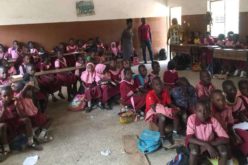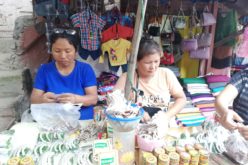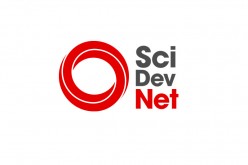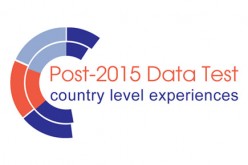Measuring the SDGs – A dialogue on unpacking the data revolution at country level
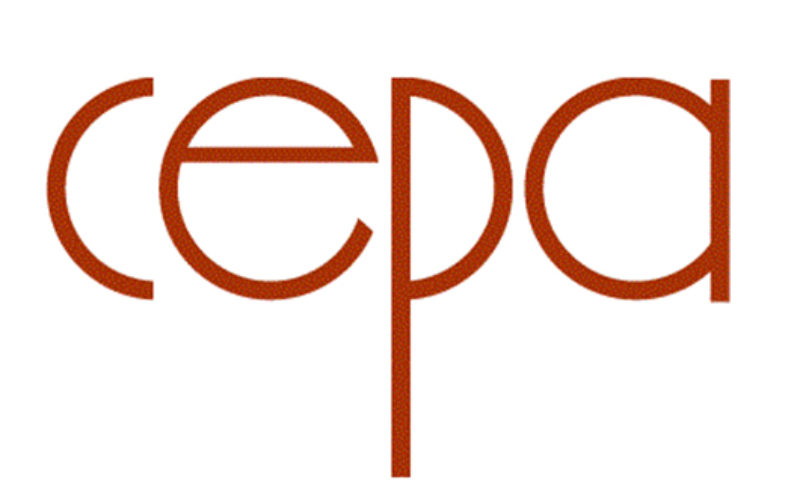
Posted on the Centre for Poverty Analysis (CEPA) website on August 05, 2016
Karin Fernando and Krishan Siriwardhana of the Centre for Poverty Analysis (CEPA), Sri Lanka share their views in this blog on the data revolution and its impact on the SDGs. The blog discusses the recent interactive discussion “Measuring the Sustainable Development Goals (SDGs)” organised by CEPA and the Southern Voice network. For more details on the discussion, please click here.
The “data revolution” is the latest preoccupation among the development community trying to rise to the challenge of measuring the Sustainable Development Goals (SDGs). In an attempt to review country-level data availability, quality and its appropriateness to measure the SDGs, the Centre for Policy Dialogue and the Norman Paterson School of International Affairs, in association with Southern Voice, implemented a multi-country project titled Post-2015 Data Test: Unpacking the Data Revolution at the Country Level. This project abbreviated toPost-2015 Data Test was implemented in 7 countries – Bangladesh, Canada, Peru, Senegal, Sierra Leone, Tanzania and Turkey. The results of this study provided the backdrop to a discussion on Sri Lanka’s own readiness and proficiency to measure the SDGs.
The discussion was chaired by the Governor of the Central Bank of Sri Lanka, Dr. Indrajit Coomaraswamy. Southern Voice network members and Post-2015 Data Test researchers Dr. Debapriya Bhattacharya, Chair, Southern Voice and Distinguished Fellow, CPD; Dr Ibrahima Hathie, Research Director, Initiative Prospective Agricole et Rurale (IPAR), Senegal; and Professor Mustafizur Rahman, Executive Director, CPD. provided insights from the study, which are summarised below.
The push for the “data revolution” comes from the objectives of the SDGs that aim to create a universal agenda that is transformative in terms of inclusion and integration of social, economic and environmental wellbeing. Universality, although a desirable objective, poses a challenge when comparing and measuring data across countries. While some indicators are comparable, it must also be acknowledged that the benchmarks or starting points are different for different countries. There is also the need for added emphasis on measuring what is nationally relevant. When considering inclusion, it is expected that data goes beyond aggregates and measures the impact on the invisible, the uncounted. However, this is a politically contested issue as it can reveal who is left out and also provide an indication of government performance. Therefore, there is a real need for buy-in from political forces, which play key roles in improving generated data, and more importantly, for using it in policy making.
The results of thestudy also show that in terms of availability of data, roughly 50% of the data is available across the countries examined , but there is a varying degree of quality. While more developed countries have better data, there is also variability of quality between countries showing similar levels of development. The criteria to measure quality were relevance, timeliness and accessibility, accuracy and coherence. Countries scored highest on relevance and lowest on coherence and timeliness, which reveals that having timely data is a big challenge. The type of data available is also related to what was measured by the Millennium Development Goals (MDGs), where data gaps were prevalent in areas such as infrastructure, energy, environment and not surprisingly, governance.
In terms of data generators, the speakers emphasised the need for autonomous and legislative protection for national statistical agencies to provide quality and independent information. Adequate human resources, capacity, investment, technology and incentives in such entities can improve efficacy. Protective legislation, such as right to information, civil service reforms and anti-corruption measures are other supportive means that can increase the autonomy of statistical agencies while ensuring access to information.
While statistical agencies need to take the lead in data generation, the quantity and variety of data needed will also have to involve other agencies and alternative forms of data. There is administrative data as well as data collected by non-government agencies (unofficial data) that also have to be considered. While it is necessary to make use of these different data sources, there is a need to set standards and strengthen the linkages between data generators and national agencies, in order to and improve data quality. It is also necessary to get buy-ins from data users on the quality and reliability of these unofficial data sources.
These issues flagged by the Post-2015 Data Test reporting are applicable to the Sri Lankan context. The participants at the discussion in Colombo voiced the following concerns for Sri Lanka:
- Issues of duplication
- Multiple agencies generating data
- Data that is not used and not shared freely
- Data has to be purchased
In the context of Sri Lanka, there was speculation that the current mode of operation may be ultimately more costly to the government. The members of the audience suggested that if data generation was more streamlined and made a public good, it might become more efficient and economical, which could lead to improving data availability.
Suggestions for the use of qualitative narratives as a complementary component to generalised statistics, so that those being left out can be given voice, was brought up, highlighting the importance of qualitative data. This also highlighted the role that unofficial data providers can play to increase the volume of data generated on those left behind. Related to unofficial data, is the question of big data (such as ICT/mobile data). There are attempts in Sri Lanka to generate this kind of data that can provide different perspectives and real time data. Some concerns of its ability to represent all levels of society as well as the ethical concerns regarding the “privacy” of the subjects, and issues of ownership of data are some challenges that need to be addressed when generating big data.
When the niggling question of the autonomy and capacity of Sri Lanka’s national statistics agency, the Department of Census and Statistics was raised, it was concluded that there is a structure in place for full autonomy in data collection and dissemination. However, the need for more autonomy, accessibility to data and quality improvements was also stressed. Along the same lines but also in relation to comparability and cohesion of data, an interesting endeavour currently underway was highlighted. This endeavor is trying to try to iron out some of the incongruence in data collected by different agencies with different geographic boundaries. Emphasis was placed on the need for users of data to have a good understanding of the nature and form of available data. The lack of data democracy was also emphasised, particularly regarding awareness and accessibility.
While Sri Lanka has the foundations for a good data collection systems, meeting the data needs of the SDGs will stretch the current systems and it will require innovation, technology, investment and procedural changes to make it happen. Most importantly, Sri Lanka needs to create a culture of using data for policy making, which in turn requires a real strengthening of links between data generators and users, and demonstrated benefits of using data for decisions making.
1,957 total views, 1 views today


